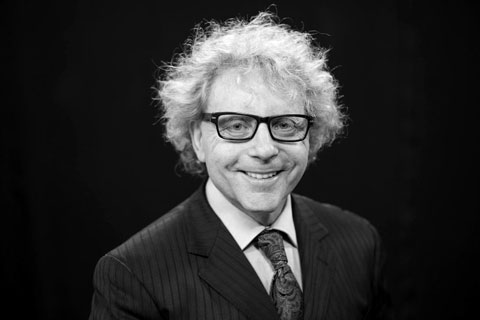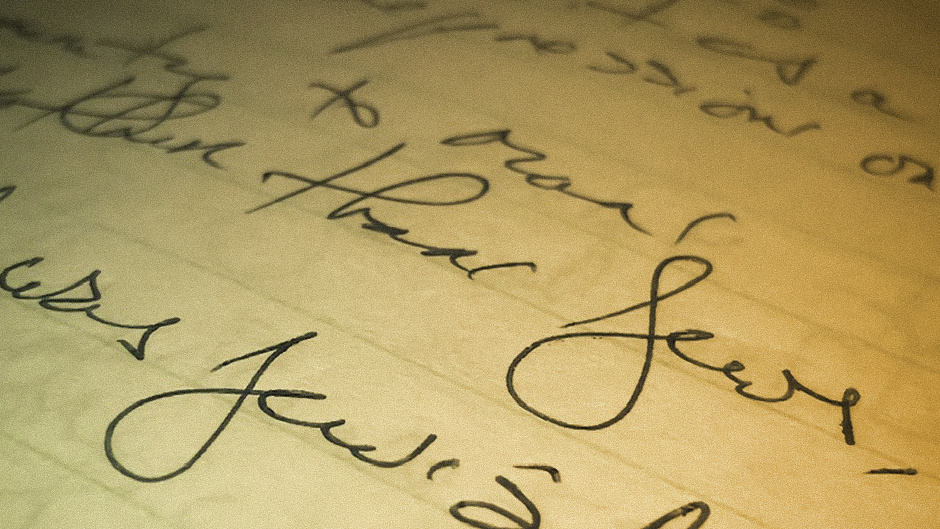Thane Rosenbaum grew up as the only son of Holocaust survivors in Miami Beach. His parents refused to talk about their past, but somehow the young Rosenbaum knew.
“I knew that their families had been wiped out,” said Rosenbaum. “I had no grandparents, no uncles, no aunts, no cousins. It did not take me long to figure out that something had happened in Europe.”
But realizing that his parents “were fragile,” Rosenbaum never broached the subject. It was after his graduation from the University of Miami School of Law in 1986 -- and after his parents’ deaths -- when he decided to take a year off to write fiction that the past came tumbling out.
“I decided to write fiction and what popped out was this post-Holocaust world,” he said. “I guess there is a mystical quality to inherited trauma.”
That trauma permeated his five novels – including “How Sweet It Is” and “Second Hand Smoke.” Rosenbaum is the director of the Forum on Law, Culture, & Society, at New York University School of Law, where he is a distinguished fellow.
 His books on legal issues focus on human rights, culture and politics. As a legal analyst and speaker he has become a well-known television and radio commentator and his writings and commentary on matters of justice, human rights, anti-Semitism, the Middle East, global terrorism and the Holocaust appear frequently in The New York Times, The Washington Post, The Wall Street Journal, and other publications.
His books on legal issues focus on human rights, culture and politics. As a legal analyst and speaker he has become a well-known television and radio commentator and his writings and commentary on matters of justice, human rights, anti-Semitism, the Middle East, global terrorism and the Holocaust appear frequently in The New York Times, The Washington Post, The Wall Street Journal, and other publications.
Miami also plays a role in each one of his novels, and that is one of the reasons why Rosenbaum decided to donate all his papers to UM Libraries, he said. “Miami is the foundation for everything that I have become,” he said.
On Thursday, April 4, UM Libraries’ Special Collections will host “Exploring Legacies: The Works of Thane Rosenbaum,” an event to celebrate him and his donation of books, documents, papers and photos to the library. Rosenbaum’s collection will be a welcomed addition to The Jewish History and Culture Collection, said Beatrice Skokan, curator of Caribbean Collections and subject liaison for French and Francophone Studies.
Rosenbaum’s ouvre will join other library collections with Jewish influence including the Ruth and Richard Shack papers, the Seymour Samet papers and the Isaac Bashevis Singer papers.
“This donation is significant in many ways: first as ongoing documentation of the life of a writer, activist, law professor and public speaker who is deeply engaged with important intellectual and political issues of our time,” said Christina Favretto, head of the UM Libraries’ Special Collections. “Secondly, I hope they will also encourage others—individuals, families, organizations—to consider adding to our Miami Jewish History collections. We here in Special Collections are dedicated to ensuring that our historical collections are preserved and safeguarded, while also being made available to a wide spectrum of the public.”
Favretto believes that Miami’s Jewish roots have often been under-documented and hopes that gifts like Rosenbaum’s will help correct that omission.
Rosenbaum’s collection includes manuscripts, early drafts of his novels in his own handwriting, flyers, posters, television appearances and several letters from prominent people he interacted with. Among them: former President Bill Clinton and Supreme Court associate justice Sonia Sotomayor.
Among the photos chronicling his professional life there is one with Elie Wiesel, the Nobel Laureate and Holocaust survivor who was a mentor to him.
Exploring Legacies: The Works of Thane Rosenbaum begins at 6:30 p.m. Thursday, April 4 at the Kislak Center at the University of Miami. Register here.

